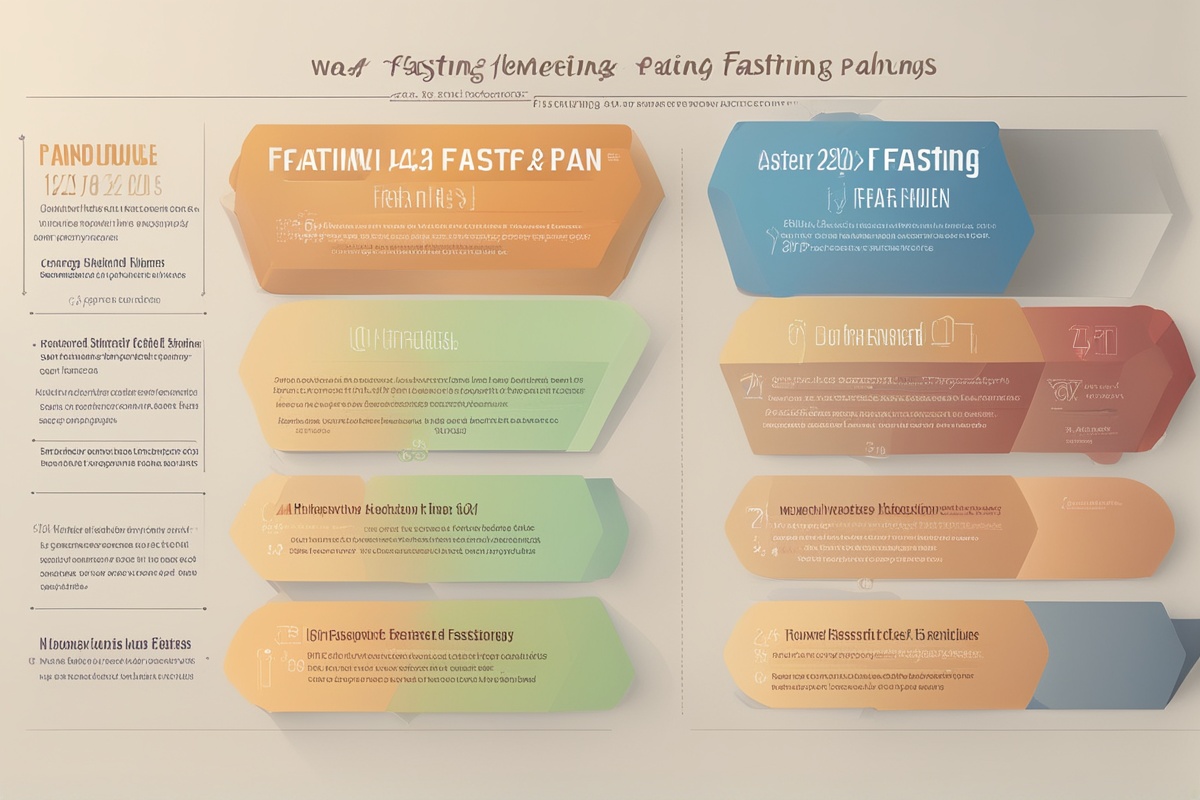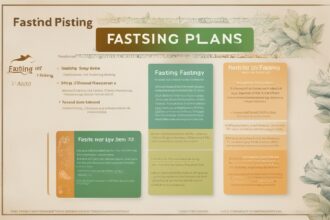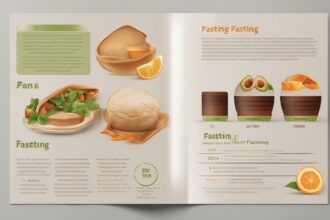Hey there, health enthusiasts! If you’ve been curious about pushing the boundaries of intermittent fasting or diving into something more intense, you’ve likely stumbled upon the concept of long-term fasting plans. These extended fasting protocols, which can last from 24 hours to several days or even weeks under supervision, are gaining traction for their potential to support weight loss, improve metabolic health, and even promote cellular repair. But before you jump in, it’s crucial to understand what extended fasting entails, the science behind it, and how to approach it safely. In this post, I’ll walk you through everything you need to know about long-term fasting plans, blending practical advice with evidence-based insights. Let’s get started on this fascinating journey to better health!
What Are Long-Term Fasting Plans?
When we talk about long-term fasting plans, we’re referring to fasting periods that go beyond the typical 16:8 or 24-hour intermittent fasting windows. These can range from 48-hour fasts to multi-day or even week-long fasts, often done with water, electrolytes, or minimal caloric intake like bone broth. Unlike short-term fasting, which focuses on daily or weekly cycles, extended fasting aims to trigger deeper physiological changes, such as ketosis and autophagy—a process where your body cleans out damaged cells (Valter Longo, 2018). People often turn to these plans for weight management, mental clarity, or to address chronic health issues, but they require careful planning and, ideally, medical supervision.
The Science Behind Extended Fasting
So, why would anyone willingly skip meals for days on end? The answer lies in the science of how our bodies adapt to prolonged periods without food. When you fast for an extended time, your body shifts from burning glucose to using stored fats for energy, entering a state called ketosis. This metabolic switch can improve insulin sensitivity and reduce inflammation, which are key factors in preventing chronic diseases (Anton et al., 2018). Additionally, research suggests that long-term fasting may stimulate autophagy, a cellular “housekeeping” process that could play a role in longevity and disease prevention (Bagherniya et al., 2018). However, while these benefits sound promising, most studies are still in early stages or conducted on animals, so human results may vary. It’s also worth noting that fasting isn’t a one-size-fits-all solution—your age, health status, and lifestyle all influence how your body responds.
Benefits of Long-Term Fasting Plans
Now that we’ve covered the basics, let’s dive into why so many people are intrigued by extended fasting protocols. While individual experiences differ, here are some of the most commonly reported and researched benefits:
- Weight Loss: Extended fasting can create a significant calorie deficit, helping to shed excess pounds by tapping into fat reserves (Johnstone, 2015).
- Improved Metabolic Health: Fasting may lower blood sugar levels and improve insulin resistance, potentially benefiting those with type 2 diabetes (Furmli et al., 2018).
- Mental Clarity: Many fasters report heightened focus and energy, often attributed to ketone production during ketosis.
- Cellular Repair: Autophagy, triggered during prolonged fasting, may help remove damaged cells and support overall health (Valter Longo, 2018).
Keep in mind, though, that these benefits often depend on how the fast is conducted and whether it’s paired with a healthy lifestyle post-fast. It’s not a magic bullet, but it can be a powerful tool when done right.
Potential Risks and How to Mitigate Them
While the perks of long-term fasting plans are exciting, it’s not all sunshine and rainbows. Extended fasting can pose risks, especially if you’re new to it or have underlying health conditions. Common side effects include fatigue, headaches, dizziness, and irritability—often called the “keto flu” during the initial adjustment to ketosis. More serious concerns include nutrient deficiencies, muscle loss, or exacerbation of medical conditions like eating disorders (Trepanowski et al., 2017). So, how do you minimize these risks? Start slow—don’t jump into a week-long fast without building up with shorter fasting windows. Stay hydrated with water and electrolytes, and always consult a healthcare provider if you’re on medications or have chronic illnesses. Listening to your body is key; if something feels off, don’t push through just to hit a fasting goal.
Practical Tips for Starting an Extended Fasting Plan
Ready to give prolonged fasting strategies a try? I’ve got you covered with actionable steps to make the process smoother and safer. Extended fasting isn’t just about willpower; it’s about preparation and mindfulness. Here are some tips to help you succeed:
- Prepare Your Body: Ease into fasting by reducing carbs and processed foods a few days before to minimize cravings and energy crashes.
- Stay Hydrated: Drink plenty of water and consider adding a pinch of salt or electrolyte supplements to prevent dehydration.
- Break Your Fast Gently: After a long fast, start with small, easily digestible meals like broth or avocado to avoid digestive distress.
- Monitor Symptoms: Keep a journal to track how you feel—energy levels, hunger, and mood can provide clues if you need to adjust.
- Get Support: Join online fasting communities or consult a nutritionist for guidance and motivation during your journey.
Remember, the goal of long-term fasting isn’t to suffer—it’s to enhance your health. If a plan feels unsustainable, tweak it until it works for you.
Who Should Avoid Long-Term Fasting Plans?
As much as I’m a fan of exploring extended fasting benefits, I have to be real with you—not everyone is a good candidate for these plans. Certain groups should steer clear or proceed only under strict medical supervision. Pregnant or breastfeeding women, for instance, need consistent nutrition for themselves and their babies. People with a history of eating disorders may find fasting triggers unhealthy behaviors. Those with conditions like diabetes or low blood pressure should consult a doctor, as fasting can affect blood sugar and medication needs (Furmli et al., 2018). If you’re unsure, err on the side of caution and get professional advice before embarking on a prolonged fast. Your health always comes first.
In wrapping up, long-term fasting plans offer a unique and potentially transformative approach to health and wellness, from supporting weight loss to possibly enhancing cellular repair. But they’re not without challenges, and they demand respect for your body’s limits. By understanding the science, preparing properly, and listening to how you feel, you can explore extended fasting safely and effectively. Whether you’re a seasoned faster or just dipping your toes into prolonged fasting strategies, take it one step at a time. Have you tried an extended fast before, or are you considering it? I’d love to hear your thoughts or questions in the comments below—let’s keep this conversation going!
References
- Anton, S. D., Moehl, K., Donahoo, W. T., Marosi, K., Lee, S. A., Mainous, A. G., … & Mattson, M. P. (2018). Flipping the metabolic switch: Understanding and applying the health benefits of fasting. Obesity, 26(2), 254-268.
- Bagherniya, M., Butler, A. E., Barreto, G. E., & Sahebkar, A. (2018). The effect of fasting or calorie restriction on autophagy induction: A review of the literature. Ageing Research Reviews, 47, 183-197.
- Furmli, S., Elmasry, R., Ramos, M., & Fung, J. (2018). Therapeutic use of intermittent fasting for people with type 2 diabetes as an alternative to insulin. BMJ Case Reports, 2018, bcr-2017-221854.
- Johnstone, A. (2015). Fasting for weight loss: An effective strategy or latest dieting trend? International Journal of Obesity, 39(5), 727-733.
- Trepanowski, J. F., Kroeger, C. M., Barnosky, A., Klempel, M. C., Bhutani, S., Hoddy, K. K., … & Varady, K. A. (2017). Effect of alternate-day fasting on weight loss, weight maintenance, and cardioprotection among metabolically healthy obese adults: A randomized clinical trial. JAMA Internal Medicine, 177(7), 930-938.
- Valter Longo, V. D. (2018). Fasting-mimicking diet and markers/risk factors for aging, diabetes, cancer, and cardiovascular disease. Science Translational Medicine, 10(430), eaai1710.






